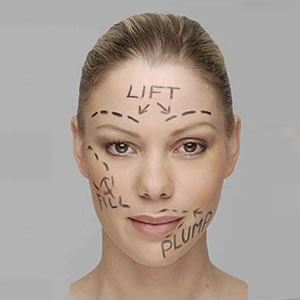Teens make up just 2 percent of cosmetic surgery patients their numbers have grown. In 2006, procedures performed on kids ages 13 to 19 totaled 244,124, including about 47,000 nose jobs and 9,000 breast augmentations, according to the American Society of Plastic Surgeons (ASPS). It’s become trendy for nose jobs, breast implants, teeth whitening, skin resurfacing, and liposuction to top a teen’s wish list. The desire for teen cosmetic surgery has been fueled by television shows depicting extreme makeovers, as well as society’s growing acceptance of plastic surgery in general.
But if a teen wants a nip or tuck, should parents comply? And at graduation time, is a boob job or liposuction really an appropriate reward for years of academic achievement?
Many teens aren’t equipped to make decisions that will potentially impact their health and the rest of their lives. Adolescents generally ground themselves in the here and now and in more concrete thinking, they don’t tend to think of the long-term effects or risks of surgery but, rather, just the concrete result of ‘I’ll look better.
There is a current fad that is capturing the imagination of teenagers worldwide. It involves the creation of double eyelids. The procedure for double eyelid surgery is gaining ground in south-east Asian countries like Singapore. Make sure that you are aware and informed about the procedure at all times. Check for plastic surgeons that are experts in carrying out this procedure.
And who can say if that Ashlee Simpson nose or DD chest will still be cute in 20 years? As with any surgery, there are risks, including bleeding and infection. And a fair number of cosmetic surgeries, perhaps as many as 20 percent, must be revised.
There’s also reason to be wary of the psychological state of some surgery candidates, as well as the surgery’s impact on mental health. Although researchers haven’t concluded surgery can lead to suicide, four epidemiologic studies have found that the risk of suicide among women with breast implants is two- to threefold higher than among other women. One theory is that some people who get surgery are actually suffering from a psychological disorder known as body dysmorphic disorder (BDD), in which they falsely believe they are unusually ugly. 5 to 15 percent of all cosmetic surgery patients have BDD and it tends to first emerge in adolescence.
By giving teen girls surgery we’re just sending this message to them that they can be anything they want to be as long as they look a certain way on the outside.

